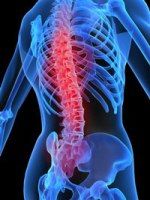Microfluidic device allows collection, analysis of hard-to-handle immune cells
Ability to gently collect neutrophils may improve understanding of immune response to serious injury
Advertisement
A team led by Massachusetts General Hospital (MGH) scientists has developed a new microfluidic tool for quickly and accurately isolating neutrophils – the most abundant type of white blood cell – from small blood samples, an accomplishment that could provide information essential to better understanding the immune system's response to traumatic injury. The system, described in a Nature medicine paper, also can be adapted to isolate almost any type of cell.
"Neutrophils are currently garnering a lot of interest from researchers and clinicians, but collecting and processing them has been a real challenge," says Kenneth Kotz, PhD, of the MGH Center for Engineering in Medicine, lead author of the study. "This tool will allow a new range of studies and diagnostics based on cell-specific genomic and proteomic signatures."
Part of the body's first-line defense against injury or infection, neutrophils were long thought to play fairly simple roles, such as releasing antimicrobial proteins and ingesting pathogens. But recent studies find their actions to be more complex and critical to both chronic and acute inflammation, particularly the activation of the immune system in response to injury.
Studying patterns of gene expression and protein synthesis in neutrophils could reveal essential information about the immune response, but gathering the cells for analysis has been challenging. Standard isolation procedures take more than two hours and require relatively large blood samples. Neutrophils also are sensitive to handling and easily become activated, changing the molecular patterns of interest, and they contain very small amounts of messenger RNA, which is required for studies of gene expression.
Building on their experience developing silicon-chip-based devices that capture CD4 T cells for HIV diagnosis or isolate circulating tumor cells, Kotz's team developed a system that gathers a neutrophil-rich sample from microliter-sized blood samples in less than 5 minutes, reducing the risk of disturbing cells in the process. To meet the requirements for speed and precision, the researchers completely redesigned the geometry, antibody-based coating and other aspects of the cell-capture module at the heart of the device. The samples collected were successful in revealing differences in gene and protein activity relevant to the cells' activation status.
While the laboratory tests were encouraging, samples from critically injured patients need to be handled and processed in real-world clinical environments. Through the efforts of study co-author Lyle Moldawer, PhD, of the University of Florida College of Medicine, the devices were tested at six sites participating in a major National Institutes of Health-sponsored study of the immune response to injury, led by Ronald Tompkins, MD, ScD, chief of the MGH Burns Service and also a study co-author. Analyzing samples from 26 patients with serious burns or other traumatic injuries revealed complex gene expression patterns that shifted during the 28 days after injury, probably reflecting complex interactions between various immune system components.
Kotz says, "Until now, it's been logistically impossible to study neutrophils to the extent we have in this paper." He notes that their analysis of neutrophil samples from trauma patients is the largest such investigation to date and adds, "This technology – which is much faster and gentler than current approaches to isolating cells – can be scaled and modified to capture just about any cell type, and we're working to apply it to other cell-based assays."
Other news from the department science
Most read news
More news from our other portals
See the theme worlds for related content
Topic world Diagnostics
Diagnostics is at the heart of modern medicine and forms a crucial interface between research and patient care in the biotech and pharmaceutical industries. It not only enables early detection and monitoring of disease, but also plays a central role in individualized medicine by enabling targeted therapies based on an individual's genetic and molecular signature.

Topic world Diagnostics
Diagnostics is at the heart of modern medicine and forms a crucial interface between research and patient care in the biotech and pharmaceutical industries. It not only enables early detection and monitoring of disease, but also plays a central role in individualized medicine by enabling targeted therapies based on an individual's genetic and molecular signature.




















































